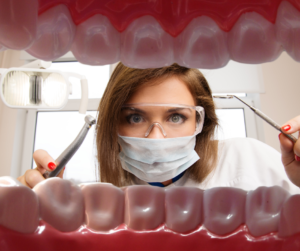If the pulp of your teeth becomes infected, you may need root canal treatment to clean the infected area and protect your tooth. After decontamination, a patient needs to visit his general dentist who covers your tooth with a crown to prevent a fracture.
Crowns typically use porcelain or zirconia, which are both highly durable and look almost identical to real teeth.
Will I need to replace my crown after a root canal?
Case by case, Endodontists use a Microscope so they can try to save crowns, yet if crowns have a cavity under, or crown crack, replacement of crown is advisable, After the root canal is completed your general dentist will evaluate the crown for final decision.
Some people think that a tooth extraction is a longer-lasting treatment than a root canal. However, when you have a tooth extracted, you increase your chances of infecting the surrounding area. It’s always better to keep your natural teeth, which means choosing the root canal procedure if it’s an option.
Related resources: Root Canal or Tooth Extraction? Pros and Cons
How age can affect teeth and root canals
Many studies have demonstrated a direct correlation between teeth resistance and age. Our teeth become increasingly brittle over time, even if they’ve been treated by a professional. As teeth become more brittle, they face a greater risk of fracturing.
Your back teeth face the greatest risk of fracturing due to the amount of pressure that they require to chew. If you need a root canal procedure on one of your back teeth, fitting a crown over the affected tooth is imperative.
Is every tooth the same?
Because back teeth handle a lot of stress, they have two or three roots and canals. Front teeth, which we use primarily for biting, usually have just one. Consequently, it’s more challenging to perform root canal procedures on back teeth than front teeth.
An endodontist may need to use posts to retain the crown of a severely damaged back tooth.
Why you shouldn’t avoid root canal therapy
Root canal procedures are understandably daunting to many individuals. There’s a common misconception that the treatment is a painful short-term fix. However, it’s actually one of the longest-lasting treatments available.
Thanks to root canal treatments, you don’t need to lose any of your natural teeth unnecessarily. Instead, you can restore your natural teeth to optimum health and protect them from future infections. Root canals can last a lifetime without requiring any special attention from you.
If you avoid root canal therapy, your tooth infection may worsen, leading to symptoms of discomfort and pain. Neglect the treatment for too long, and you could end up losing your tooth. It’s always cheaper, in the long run, to address problems as soon as they arise. How quickly you get treatment can have an impact on the longevity of the root canal.
Related resources: Six Reasons Neglecting a Toothache May Cost You More Money and Pain
How to take care of your teeth following root canal treatment
You should avoid eating any food until the numbness from the procedure completely disappears. If you’re feeling a little tender, stick to soft foods that don’t require much chewing.
Though it may feel uncomfortable at first, you should stay on top of oral hygiene. Just be gentle while brushing, and don’t forget to floss.
Make sure you visit your dentist or endodontist at least twice per year for a dental health check-up.
You can also Contact The Endo House Now for a free dental health check-up!
Testimonial from Tamela, A patient of The Endo House, Huntington Beach
Was referred to Dr. Noureldin for the possibility of needing a root canal. From the moment that I walked into his office, the nervousness had eased and I began to feel a calmness. His office was immaculate and the staff was very welcoming and friendly. Dr. Noureldin’s consultation was thorough as he sat down and explained to me my options. The fact that his motto is ‘all about saving your teeth’ helped in making my choice easier. The decision to go for a retreat was indeed the right one, due to him finding a canal that another doctor had missed from a previous root canal procedure. I can’t thank Dr. Noureldin enough! He is the absolute best!!





